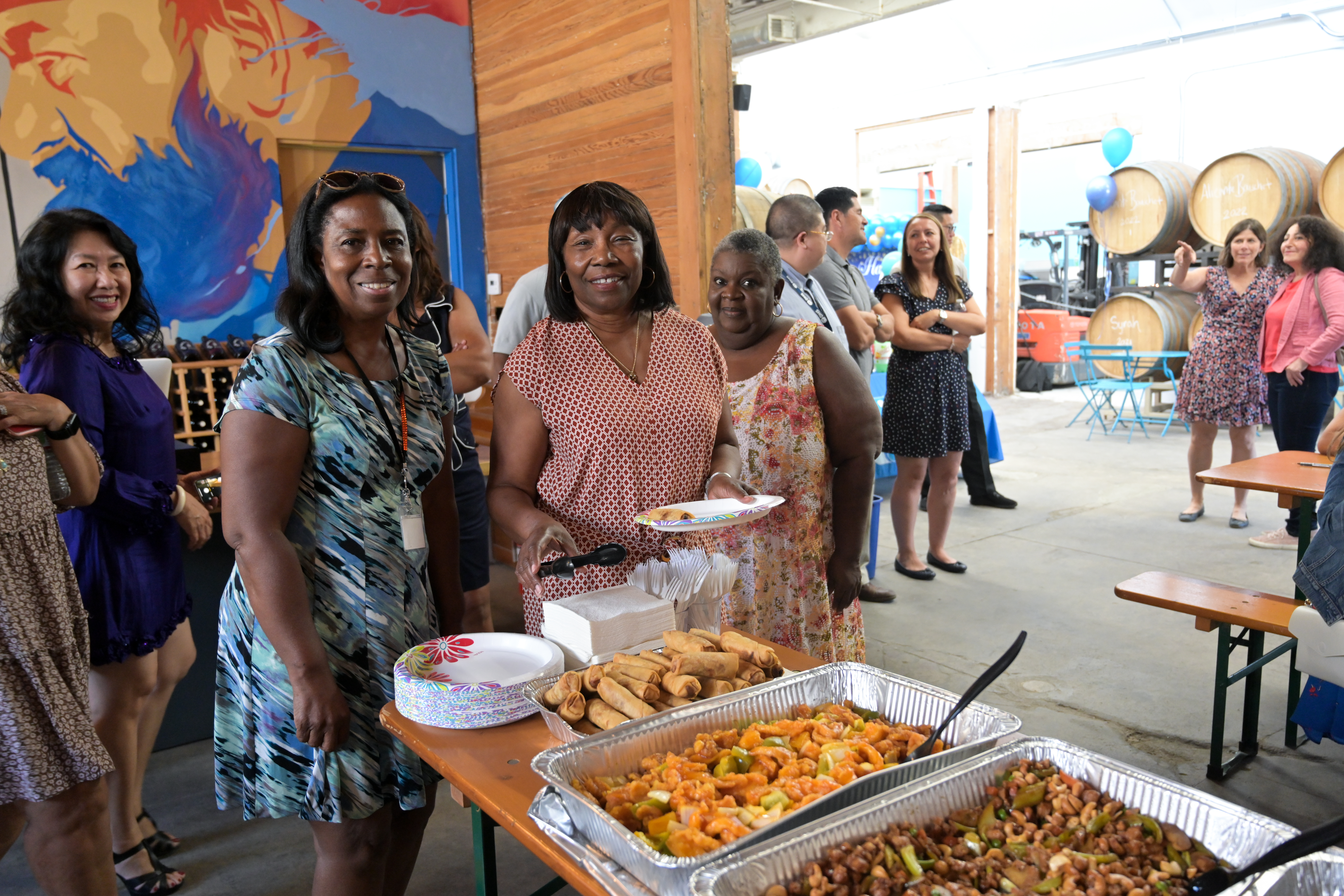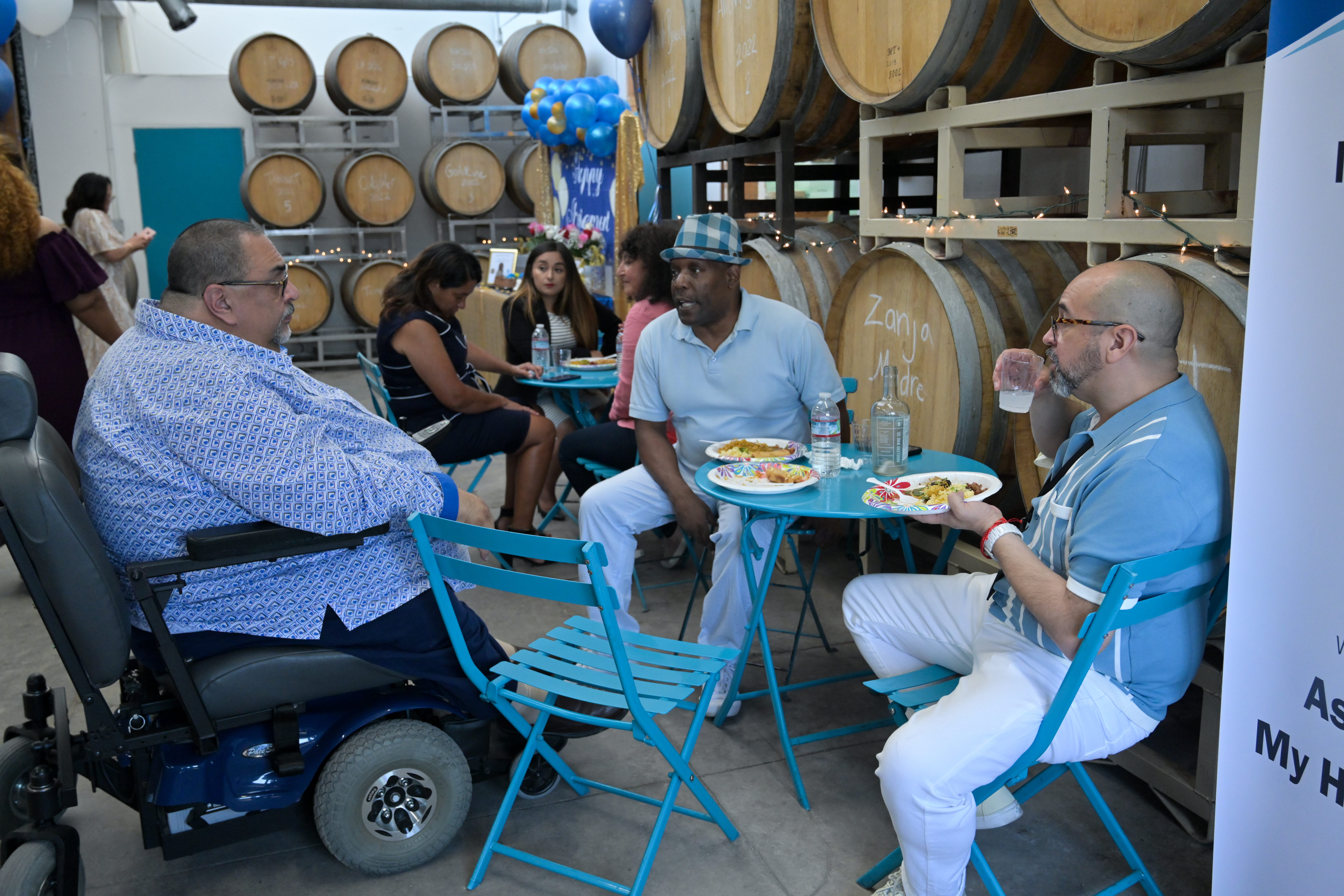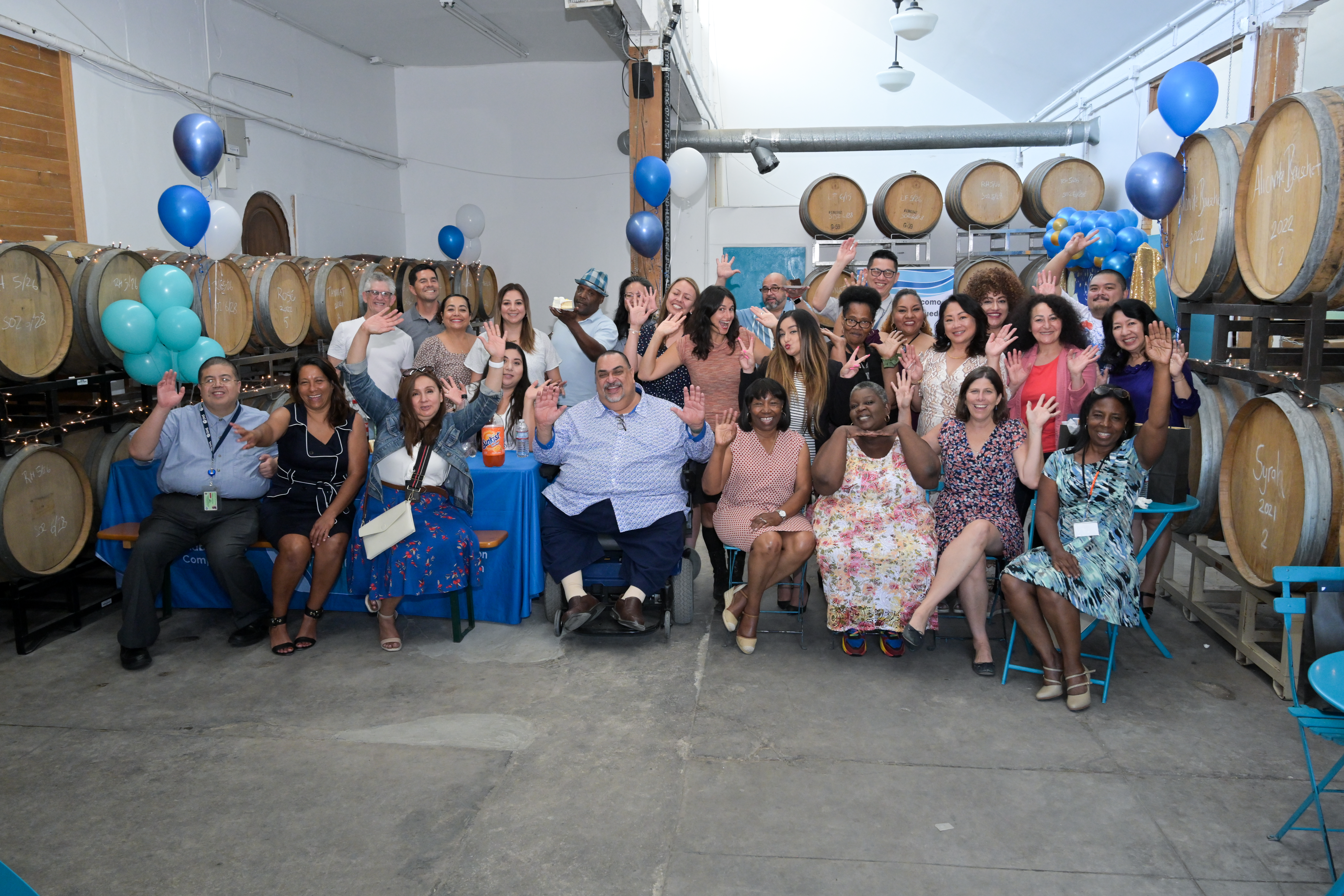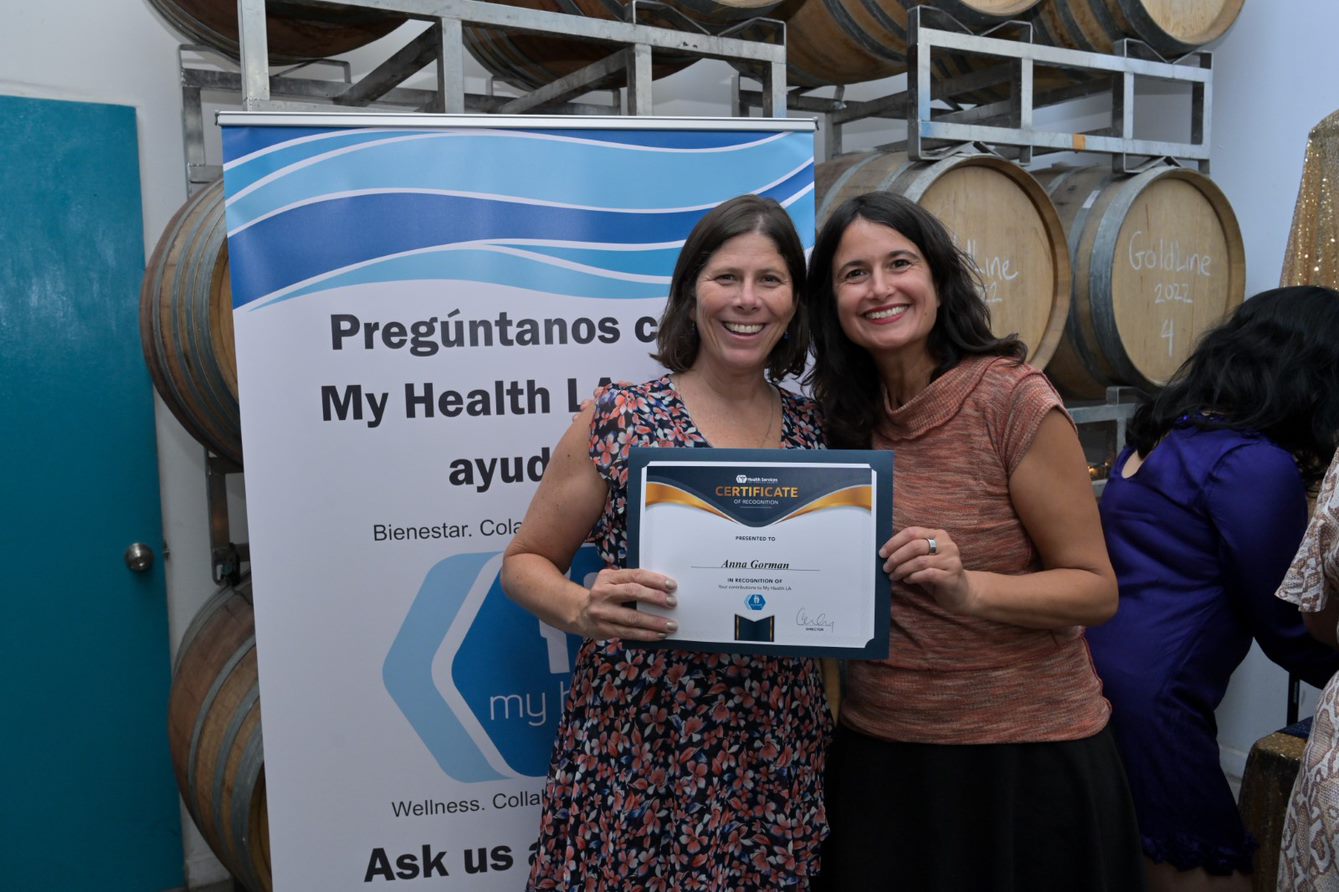Current MHLA Director Anna Gorman and Prior MHLA Director Amy Luftig Viste
Ten years ago, LA Health Services filled a critical gap in health coverage by starting an innovative primary care program called My Health LA. Since 2014, My Health LA (MHLA) has served hundreds of thousands of low-income, uninsured immigrants who did not qualify for public health insurance.
Now, all of the MHLA participants – about 87,000 adults 26 to 49 years old – are eligible for full-scope Medi-Cal due to a State law that took effect January 1, 2024. The My Health LA team has been working with contracted community clinics, fellow LA County departments and community-based organizations to get as many participants as possible enrolled. MHLA staff have also sent out letters and flyers, made robocalls, sent texts and held webinars and presentations. January 31 marks the end of the MHLA program.
The Medi-Cal expansion means that My Health LA participants will now have comprehensive access to mental health care, medical care, vision, dental, long-term care, substance use disorder services, transportation, in-home supportive services and more. This is the final, state-funded expansion to low-income Californians regardless of immigration status, following the extension to children in 2015, young adults in 2020 and older adults in 2022.
The vast majority of the My Health LA participants were Latinx and Spanish-speaking, but the program served people of all ethnicities and races and made sure that care and health information was available in numerous languages. Participants received no-cost primary care at community clinics throughout Los Angeles County, and specialty, emergency and hospital care at the LA Health Services.
“My Health LA has made a difference in the lives of so many immigrant families and have kept them healthy and connected to health care,” said Anna Gorman, director of MHLA and COO of Community Programs for LA Health Services. “I’m proud of what we and our partners have accomplished.”
Carmen Muniz, COO of Family Health Care Centers of Greater Los Angeles, a MHLA community clinic partner, said at a recent media briefing that she was glad to see the MHLA participants receive comprehensive Medi-Cal.
“No patient should feel that because they have limited income, they can’t receive the care they need,” Muniz said, “nor should your immigration status be a barrier for you to receive quality medical care.”
My Health LA has been a model for other counties around the state and nation, and enabled immigrant families to have regular doctors, manage their chronic diseases, receive preventive care and avoid unnecessary emergency room visits.
My Health LA was a partnership with the community clinics, the Community Clinic Association of Los Angeles County. Louise McCarthy, the association’s president and CEO, said the impact of the partnership has been “profound.” “Los Angeles has worked to create a system of care, with a priority focus on prevention, for the county’s most under-resourced residents,” she said. “Together we laid a foundation for the success of the Medi-Cal coverage expansion.”
Divisions throughout LA Health Services contributed to the success of the program, including finance, contracts, specialty care, patient access and more. MHLA also formed important collaborations with the Department of Mental Health and the Department of Public Health Substance Abuse Prevention and Control to provide mental health prevention services and field-based substance use treatment services and access to opioid treatment medications.
All of the My Health LA staff will be moving on to different roles at LA Health Services. Some have been working on the partnership with the community clinics for decades, including on earlier, similar programs, such as Healthy Way LA and the Public-Private Partnership.
My Health LA Senior Program Manager Marie Quesada said she is sad to see the program end, but she is excited for the uninsured population because they are receiving full-scope Medi-Cal. Senior Program Manager Philip Barragan said, “It’s imperative to provide this disenfranchised population, who are often neglected and without appropriate resources, the health care that they deserve. Healthcare is a right and everyone deserves the opportunity to be healthy.”




